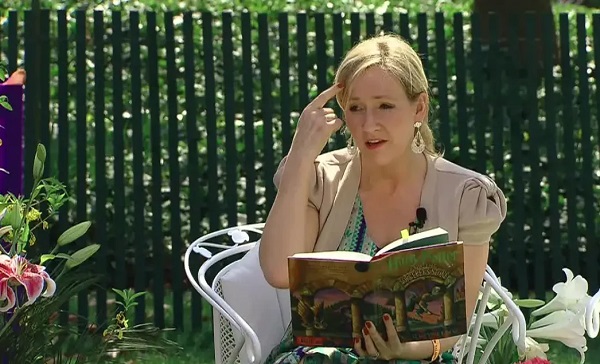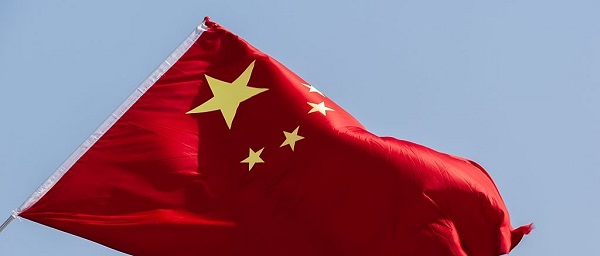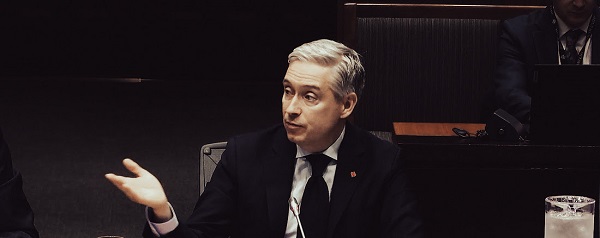Censorship Industrial Complex
Global media alliance colluded with foreign nations to crush free speech in America: House report

From LifeSiteNews
By Dan Frieth
The now-defunct ad coalition GARM shared insider data and urged boycotts of Twitter to punish non-compliance with its ‘harmful content’ standards, a US House Judiciary report shows.
A new report from the U.S. House Judiciary Committee has shed light on what it describes as an alarming collaboration between powerful corporations and foreign governments aimed at suppressing lawful American speech.
The investigation focuses on the Global Alliance for Responsible Media (GARM), an initiative founded in 2019 by the World Federation of Advertisers (WFA), which the committee accuses of acting as a censorship cartel.
According to the report, GARM, whose members control about 90 percent of global advertising spending, exploited its market dominance to pressure platforms like Twitter (now X) into compliance with its restrictive content policies.
A copy of the report can be found HERE.
The committee highlighted how GARM sought to “effectively reduce the availability and monetization” of content it deemed harmful, regardless of public demand for free expression.
Documents obtained by the committee reveal direct coordination between GARM and foreign regulators, including the European Commission and Australia’s eSafety commissioner.
In one exchange, a European bureaucrat encouraged advertisers to leverage their influence to “push Twitter to deliver on GARM asks.”

Similarly, Australia’s eSafety Commissioner Julie Inman Grant praised GARM’s “significant collective power in helping to hold the platforms to account” and sought updates to “take into account in our engagement and regulatory decisions.”

Robert Rakowitz, GARM’s co-founder and initiative lead, expressed a chilling goal in private correspondence, stating that silencing President Donald Trump was his “main thing” and likening the president’s speech to a “contagion” he aimed to contain “to protect infection overall.”

The report outlines how GARM distributed previously unavailable non-public information about Twitter’s adherence to its standards, fully aware this would prompt advertisers to boycott the platform if it failed to conform. According to the House report, Rakowitz admitted that this information sharing was designed to encourage members not to advertise on Twitter.
He went as far as to draft statements urging GARM members to halt advertising on the platform, telling colleagues he had gone “as close as possible” to saying Twitter “is unsafe, cease and desist.”
Despite the widespread impact of GARM’s actions, including what the committee describes as coerced “concessions” from platforms, internal polling circulated within GARM showed that “66 percent of American consumers valued free expression over protection from harmful content.”
Still, GARM pressed ahead with efforts to “eliminate all categories of harmful content in the fastest possible timing,” ignoring consumer preferences.
Even after GARM dissolved in 2024 amid legal challenges, similar efforts persisted.
A new coalition led by Dentsu and The 614 Group briefly attempted to revive GARM’s mission before disbanding under scrutiny. Gerry D’Angelo, a former GARM leader, reflected on the initiative’s overreach, stating, “Did we go too far in those first rounds of exclusionary restrictions? I would say yes.”
The Judiciary Committee warns that despite GARM’s downfall, the threat of collusion to stifle free expression remains.
It pledged to continue oversight to defend “the fundamental principles” of the Constitution and ensure that markets, not coordinated censorship efforts, shape the flow of information in the digital age.
Reprinted with permission from Reclaim The Net.
Aristotle Foundation
Efforts to halt Harry Potter event expose the absurdity of trans activism

The Vancouver Park Board hasn’t caved to the anti-J.K. Rowling activists, but their campaign shows a need for common sense
This November, Harry Potter is coming to Vancouver’s Stanley Park. And some people aren’t happy.
The park will host Harry Potter: A Forbidden Forest Experience, an immersive exhibit that’s been staged around the world, prompting outrage from the gay and trans community. Why? Because J.K. Rowling, the creative genius behind the Harry Potter franchise, has been deemed a heretic — a “transphobe” — for her publicly stated view that men are men and women are women.
Rowling’s journey into so-called heresy began almost six years ago when she dared to publicly support Maya Forstater, a British tax expert who lost her job for asserting on social media that transgender women remain men.
“Dress however you please,” Rowling posted on Twitter in 2019. “Sleep with any consenting adult who’ll have you. Live your best life in peace and security. But force women out of their jobs for stating that sex is real? #IStandWithMaya #ThisIsNotADrill.”
It seemed to me and many others a rather benign tweet. But it was enough to generate global outrage from the trans community and its supporters. Rowling’s books have been boycotted and burned, with even the actors who portrayed Harry Potter characters on screen — most notably Daniel Radcliffe, Emma Watson and Rupert Grint — turning against the author who made them famous.
And yet Rowling has stuck to her guns, defending women and their right to enjoy spaces free of biological males in shelters, prisons, sports and so on. And she has stood against the “gender-affirming care” model that transitions children; in an X post last December, she said, “There are no trans kids. No child is ‘born in the wrong body.’”
It is — or should be — fair game to debate Rowling’s views. But in the hyper-polarized world of transgenderism, debate isn’t permitted. Only cancellation will suffice. Hence the angry response to the Vancouver Park Board’s greenlighting of the “Forest Experience” exhibit.
Vancouver city councillors Lucy Maloney and Sean Orr have called for the park board to reverse its decision.
“The trans and two-spirit community have made their voices heard already about how upset they are that this is happening,” Maloney said. “J.K. Rowling’s actions against the trans community are so egregious that I think we need to look at changing our minds on this.”
Orr concurred. “This is a reputational risk for the park board right now,” he said. “If there’s a way we can get out of this, we should consider this.
Thus far, thankfully, most park board commissioners have stood their ground. The exhibit is scheduled to go ahead as planned.
It’s worth emphasizing that since Rowling began her public defence of biological reality, much has changed. In 2024, the final report of the United Kingdom’s Cass Review exposed the shocking lack of evidence for the “gender-affirming” model of care; this led to a ban on puberty blockers in that country. Multiple European jurisdictions have done the same, enacting safeguards around transitioning youth. Major sports organizations have begun formally excluding biological males from female competitions. And in April 2025, the British Supreme Court decreed that “woman” and “sex” refer to biological sex assigned at birth, not gender identity.
Suffice it to say that Rowling has been vindicated.
Yet, as shown by a report published last year by the Aristotle Foundation (which I co-authored), Canada is increasingly an outlier in doubling down on transgender ideology. The Canadian Medical Association, the Canadian Pediatric Society and the Canadian Psychological Association continue to endorse the “gender-affirming” model of care. Even Canada’s Gordon Guyatt, hailed as one of the “fathers” of evidence-based medicine, has been cowed into distancing himself from his own research, which laid bare the scant amount of evidence supporting “gender-affirming” care.
It’s hard to know what it will take to set Canada back on a path of common sense and scientific rationality. Some Potter-style magic, perhaps. Or failing that, a return to good old-fashioned tolerance for open discussion and an honest exchange of views.
Dr. J. Edward Les is a pediatrician in Calgary and a senior fellow at the Aristotle Foundation for Public Policy. Photo: WikiCommons
Censorship Industrial Complex
Winnipeg Universities Flunk The Free Speech Test

From the Frontier Centre for Public Policy
By Tom Flanagan
Frances Widdowson faced mob hostility for saying unmarked graves have yet to be proven
Dr. Frances Widdowson’s visit to Winnipeg on Sept. 25 and 26 should have been an opportunity for debate. Instead, the city’s universities endorsed a statement that undermines academic freedom.
Widdowson, a political scientist known for questioning official narratives about residential schools, came to meet students who wanted to ask about claims of “unmarked graves.” Those claims, which became national headlines in 2021 after ground-penetrating radar surveys at former school sites, remain unproven because no physical evidence of burials has been found.
For many Canadians, the claims of “unmarked graves” were a shocking revelation, given how widely the story was reported as a settled fact.
That context alone should have been enough to spark discussion. Instead, the University of Manitoba and the University of Winnipeg joined the Assembly of Manitoba Chiefs in issuing a statement that should embarrass both schools. At institutions dedicated to study and inquiry, the instinct should be to ask more questions, not to shut them down.
At first, the statement sounded reasonable. It said the universities did not “condone violence or threats to anyone’s safety.” But that did not stop Widdowson from being roughed up by a mob at the University of Winnipeg. It would be refreshing if the universities condemned mob violence with the same urgency they condemned a professor answering questions. Their silence sends its own message about which kind of behaviour is tolerated on campus.
The bigger problem is the statement’s claim that there is a single “truth” about residential schools, known to “survivors,” and that questioning it amounts to “denial.” In reality, 143 residential schools operated with federal support for more than a century. What happened varied widely from place to place and decade to decade.
That is a subject for historical research, grounded in evidence and debate, not pronouncements about capital-T “Truth” issued by communications offices. Canadians deserve to know that history is still being studied, not declared untouchable.
Worse still was the statement’s promise to “press the Government of Canada to enact legislation that makes residential school denialism a crime.” The Assembly of Manitoba Chiefs is free to say what it wants. But universities lending their names to a demand that historical inquiry be criminalized is beyond misguided; it is dangerous.
Criminalizing “denialism” would mean that even challenging details of the residential school record could be punishable by law. Canadians should think carefully before accepting laws that turn historical debate into a criminal offence.
The University of Chicago’s widely praised statement on academic freedom puts it well: “the University’s fundamental commitment is to the principle that debate or deliberation may not be suppressed because the ideas put forth are thought by some or even by most members of the University community to be offensive, unwise, immoral, or wrong-headed. It is for the individual members of the University community, not for the University as an institution, to make those judgments for themselves.” That principle should also guide Canadian universities. Academic freedom is not a luxury; it is the foundation of higher education.
Worst of all, these positions were not even issued in the names of presidents or academic leaders. They were issued under “media relations.” Imagine being a serious scholar or scientist at one of these universities and discovering that the media office had taken a political stance on your behalf.
I know how I would feel: undermined as a professional and silenced as a citizen.
Tom Flanagan is a professor emeritus of political science at the University of Calgary and a Fellow of the Royal Society of Canada. He is a senior fellow at the Frontier Centre for Public Policy and co-editor of the best-selling book Grave Error: How the Media Misled Us (and the Truth about Residential Schools).
-

 Alberta2 days ago
Alberta2 days agoFact, fiction, and the pipeline that’s paying Canada’s rent
-

 International1 day ago
International1 day agoTrump gets an honourable mention: Nobel winner dedicates peace prize to Trump
-

 Business17 hours ago
Business17 hours agoCarney government plans to muddy the fiscal waters in upcoming budget
-

 Business1 day ago
Business1 day agoTrump Warns Beijing Of ‘Countermeasures’ As China Tightens Grip On Critical Resources
-

 Alberta2 days ago
Alberta2 days agoAlberta Is Where Canadians Go When They Want To Build A Better Life
-

 International2 days ago
International2 days agoTrump-brokered Gaza peace agreement enters first phase
-

 Crime1 day ago
Crime1 day agoCanada’s safety minister says he has not met with any members of damaged or destroyed churches
-

 COVID-191 day ago
COVID-191 day agoTamara Lich says she has no ‘remorse,’ no reason to apologize for leading Freedom Convoy




